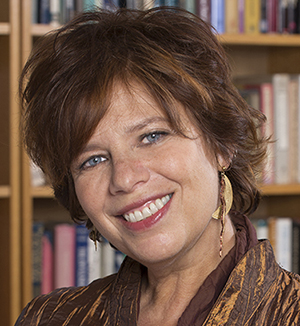
Diana Fosha, PhD
Diana Fosha, PhD, is the developer of AEDP (Accelerated Experiential Dynamic Psychotherapy), a healing-based, transformation-oriented model of psychotherapeutic treatment; she is Founder and Director of the AEDP Institute. For the last 20 years, Diana has been active in promoting a scientific basis for a healing-oriented, attachment-emotion- and transformation-focused trauma treatment model. Fosha's work focuses on integrating neuroplasticity, recognition science and developmental dyadic research into experiential and transformational clinical work with patients. Her most recent work focuses on flourishing as a seamless part of the process of transforming emotional suffering.
Based in New York City, where she lives and practices, Fosha has been on the faculties of the Departments of Psychiatry and Psychology of NYU and St. Luke’s/Roosevelt Medical Centers (now Mount Sinai) in NYC, and of the doctoral programs in clinical psychology at the Derner Institute for Advanced Psychological Studies and The City University of New York.
She is the author of The Transforming Power of Affect: A Model for Accelerated Change (Basic Books, 2000); co-author, with Natasha Prenn, of Supervision Essentials for Accelerated Experiential Dynamic Psychotherapy (APA, 2016); 1st editor, with Dan Siegel and Marion Solomon, of The Healing Power of Emotion: Affective Neuroscience, Development & Clinical Practice (Norton, 2009), and editor of the soon to be released AEDP 2.0: Undoing Aloneness and the Transformation of Suffering into Flourishing (APA, in press). The author of numerous articles on AEDP’s attachment-emotion-transformation focused experiential treatment model, she has contributed chapters to, among others, Clinical Pearls of Wisdom: 21 Leading Therapists Offer their Key Insights, edited by M. Kerman (Norton, 2009); Complex Traumatic Stress Disorders: An Evidence-Based Clinician’s Guide, edited by C. Courtois & J. D. Ford (Guilford, 2009); Healing Moments in Psychotherapy, edited by Dan Siegel and Marion Solomon (Norton, 2013); Advances in Contemplative Psychotherapy: Accelerating Transformation, edited by Loizzo, Neale & Wolf (Norton, 2017), Moments of Meeting in Psychoanalysis: Interaction and Change in the Therapeutic Encounter, edited by Lord (Routledge: 2017) and The Comprehensive Handbook of Psychotherapy, Volume 1: Psychodynamic and Object Relations Therapies, edited by J. J. Magnavita (Wiley, 2002).
Four DVDs of her live AEDP clinical work, including one documenting a complete 6-session treatment, and one on clinical supervision, have been issued by the American Psychological Association (APA). Learn more and purchase here.
Described by psychoanalyst James Grotstein as a “prizefighter of intimacy,” and by David Malan as “the Winnicott of [accelerated experiential] psychotherapy,” Diana Fosha is known for her powerful, precise yet simultaneously poetic and evocative affective writing and presenting style. Diana’s phrases — “undoing aloneness,” “existing in the heart and mind of the other,” “True Other,” “make the implicit explicit and the explicit experiential,” “stay with it and stay with me,” “rigor without shame” and “judicious self-disclosure” — capture the ethos of AEDP.
Watch Diana's Trusting Vitality video here.